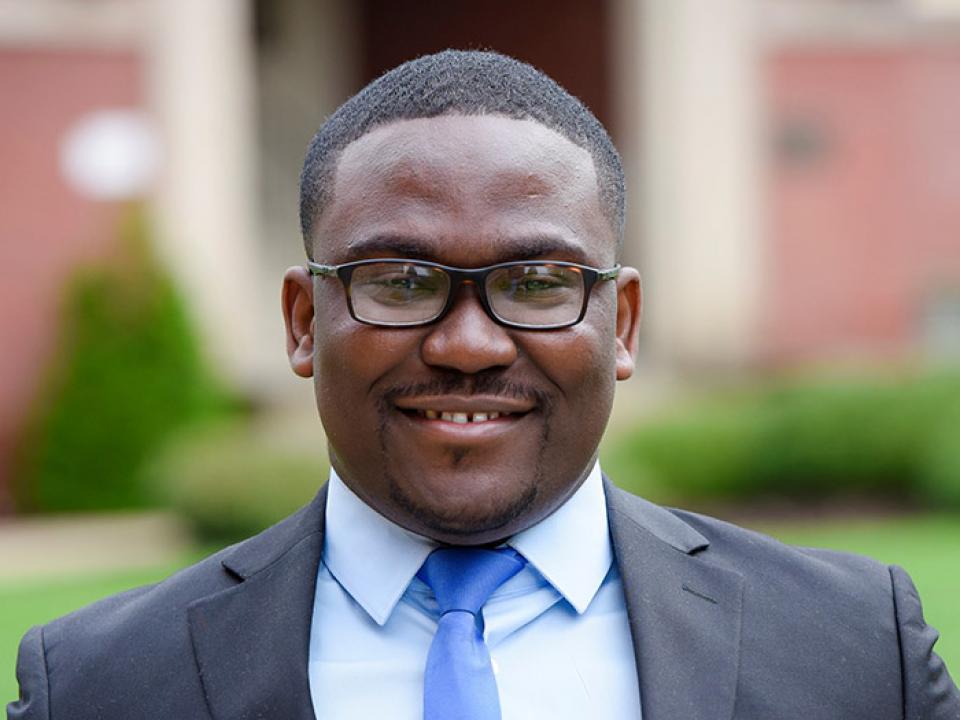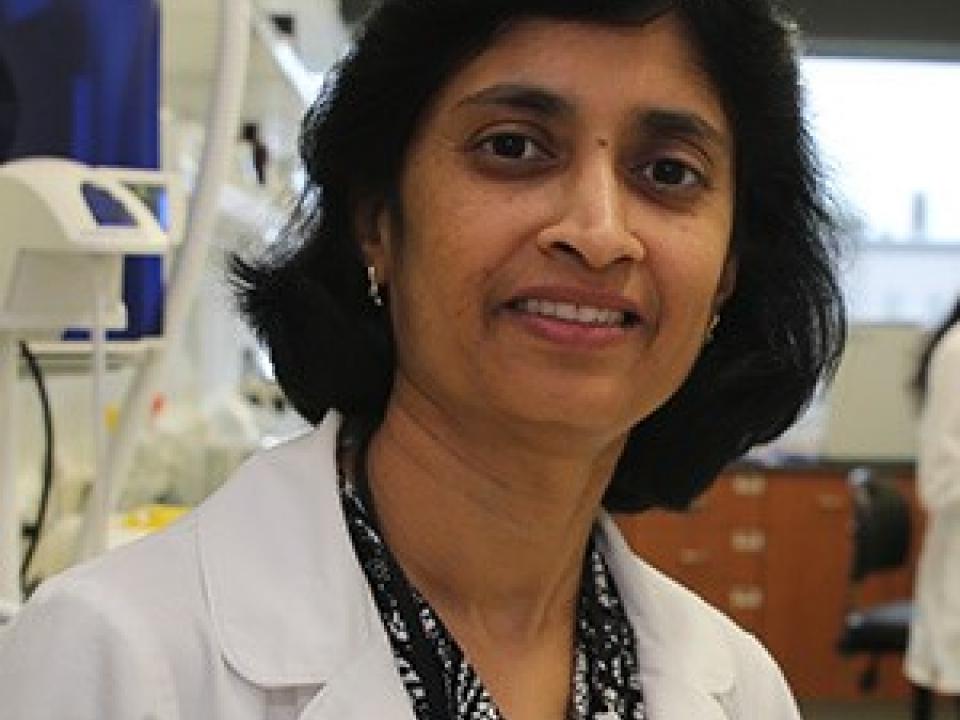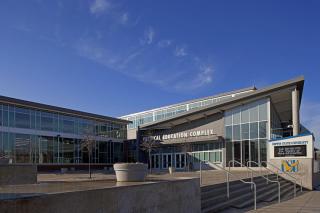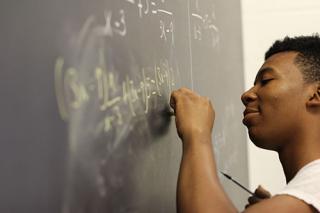Biology: Pre-Pharmacy
Biology: Pre-Pharmacy
Like the field of medicine, pharmacy has a strong foundation in the biological sciences. Many people interact with pharmacists to pick up doctor-ordered prescriptions, but pharmacists do so much more than dose medications. Like other medical professionals and practitioners, pharmacists need a strong understanding of biology, chemistry, and math. Pharmacists also need communication skills to educate patients, medical professionals, and the public on new medication usages, dosages, and the regulatory environment around new, life-saving pharmaceuticals.
Our Pre-Pharmacy concentration makes your transition to pharmacy school a seamless one. With courses that meet pharmacy prerequisite requirements, you’ll be well on your way to becoming an industry leader ready to educate, innovate, and impact transformational change.
You can choose to major or minor in Biology.
Learn how to:
-
Apply core biological science concepts to real world scenarios
-
Master the scientific method and scientific primary literature, experiment design and application, as well as data evaluation
-
Apply biological knowledge to individual, community, and global issues
-
Master basic laboratory skills and techniques across multiple biology disciplines
-
Think critically to formulate problems, gather and analyze data, as well as interpret results
-
Effectively communicate biological information to the scientific community through written and oral formats
-
Translate and apply skills to graduate or professional studies and/or career goals
-
Demonstrate scientifically ethical conduct, as well as an awareness of legal and ethical implications of scientific issues in society

750+ Course Options
The Coppin State University Academic Catalog has a wide variety of skill-building courses designed to inspire and prepare you to be in-demand professionals and transformational leaders.
The Pre-pharmacy concentration focuses on helping students apply biological science theories, principles, and techniques to careers and professional programs related to medicine, pharmacy, and physician assistantships.
Biology students can choose from 2 other concentrations to learn the foundational skills that prepare you for advanced study, or any medical career with research or analytical responsibilities:
Admission requirements
To be eligible for admission to the Biology and Life Sciences program, students must be currently enrolled and in good academic standing. It also helps if you’re excited about and interested in a career in science!
Program Requirements
To graduate with a Bachelor of Science in Biology and Life Sciences, students must complete 120 credit hours. These credit hours split among:
-
General Education Requirements, or GERs
-
Core major courses
-
Supporting major courses
-
Electives
General Education Requirements (GERs)
All students must complete 40 GER credits. In addition, all science majors must also take these courses to satisfy GERs:
-
MATH 131 (College Algebra for science majors)
-
BIOL 106 (Fundamentals of cell biology)
-
CHEM 101 - General Chemistry (Prerequisite MATH 131)
Learn more about the program courses you may take as part of the Pre-pharmacy track within the Applied Sciences concentration of the Biology major.
Core Courses (30 credits)
| Course | credits | Name |
|---|---|---|
| BIOL 103 | 4 | Botany |
| BIO 104 | 4 | Zoology |
| BIOL 201 | 4 | Anatomy and Physiology I |
| BIOL 203 | 4 | Anatomy and Physiology II |
| BIOL 308 | 4 | Microbiology |
|
BIOL 402 |
4 | Principles of Genetics |
|
BIOL 410 |
4 |
Molecular Biology |
| BIOL 403 | 1 | Seminar I |
| BIOL 404 | 1 |
Seminar II |
Supporting Courses (41 credits)
| Course | credits | Name |
|---|---|---|
| CHEM 102 | 4 | General Chemistry II |
| CHEM 307 | 5 | Organic Chemistry I |
| CHEM 308 | 5 | Organic Chemistry II |
| CHEM 313 | 4 | Biochemistry |
|
MATH 132 |
4 |
Pre-Calculus |
| PHYS 301 | 4 | Physics I |
| PHYS 302 | 4 | Physics II |
| MATH 201 | 4 | Calculus I |
| MATH 202 | 4 | Calculus II |
| MATH 203 | 3 | Statistics |
Electives (9 credits)
| Course | credits | Name |
|---|---|---|
| BIOL 302 | 4 | Animal Histology |
| BIOL 305 | 4 | Animal Physiology |
| BIOL 303 | 4 | Neuroscience: Research & Analysis |
|
PHSC 306 |
4 |
Earth and Space Science |
| XXX xxx | 3 or 4 | Advised Course |
| BIOL 401 | 3 | Ecology |
| CHEM 405 | 4 | Advanced Inorganic Chemistry |
Remember! You must complete all major and prerequisite courses with a grade of C or higher.
Sample Degree Plan
This plan is only for example purposes. Your academic journey may be slightly different from another student’s, so be sure to always communicate with your academic advisor before finalizing your course schedule.
Fall Semester (16 credits)
| Course | credits | name |
|---|---|---|
| ENGL 101 | 3 | English Composition I |
| PSYC 201 | 3 | General Psychology |
| MATH 131 | 3 | College Algebra |
| HIST xxx | 3 | History I Course |
|
PHIL 102 |
3 |
Introduction to Logic |
| FRESEM 101 | 1 | Freshman Seminar |
Spring Semester (18 credits)
| course | credits | name |
|---|---|---|
| MATH 132 | 4 | Pre-Calculus |
| BIOL 106 | 4 | Cell Biology |
| CHEM 101 | 4 | General Chemistry I |
| MISY 150 (or HEED 101 or GEOG 102) | 3 | Tech Fluency |
| HIST xxx | 3 | History II Course |
Fall Semester (13 credits)
| Course | credits | name |
|---|---|---|
| ENGL 102 | 3 | English Composition II |
| ANTH 207 | 3 | Anthropology |
| WLIT 207 | 3 | World Literature |
| BIOL 103 | 4 | General Botany |
Spring Semester (15 credits)
| Course | credits | name |
|---|---|---|
| CHEM 102 | 4 | General Chemistry II |
| BIOL 201 | 4 | Anatomy and Physiology I |
| IDIS 103 (or Foreign Lang, ART 103, Music 201, Dance 226, Theater 211, Speech 105) | 3 | Music and Dance |
| BIOL 104 | 4 | General Zoology |
Fall Semester (17 credits)
| Course | credits | name |
|---|---|---|
| CHEM 307 | 5 | Organic Chemistry (only offered in the Fall) |
| PHYS 301 | 4 | General Physics (only offered in the Fall) |
| BIOL 308 | 4 | Microbiology |
| BIOL 203 | 4 | Anatomy and Physiology II |
Spring Semester (17 credits)
| course | credits | name |
|---|---|---|
| CHEM 308 | 5 | Organic Chemistry II (only offered in the Spring) |
| PHYS 302 | 4 | Physics II (only offered in the Spring) |
|
MATH 201 |
4 |
Calculus I |
| BIOL 410 | 4 | Molecular Biology (only offered in the Spring) |
Fall Semester (12 credits)
| Course | credits | name |
|---|---|---|
| BIOL 403 | 1 | Seminar in Biology I |
| BIOL xxx | 4 | Program elective (BIOL 303 Neuroscience Res & Anal or BIOL 302 Animal Histology) |
| MATH 203 | 3 | Statistics |
| MATH 202 | 4 | Calculus II |
Spring Semester (13 credits)
| Course | credits | Name |
|---|---|---|
| BIOL 404 | 1 | Seminar II |
| BIOL 402 | 4 | Principles of Genetics (only offered in the Spring) |
| CHEM 313 | 4 | Biochemistry (only offered in the Spring) |
| BIOL xxx | 4 | Program Elective (BIOL 301/305/ BIOL 204 Embryology/Animal Physiology or Vertebrate Structure and Development – only offered in the Spring) |
Related Natural Science Programs
Applied Molecular Biology and Biochemistry
Biology and Life Sciences
Biology: Pre-Pharmacy
Biology: Pre-Physician Assistant
Biology
Computational Chemistry
Biochemistry
Polymer and Material Sciences
Biology and Life Sciences lives in the Department of Natural Sciences in the School of Arts & Sciences within the College of Arts & Sciences, and Education













